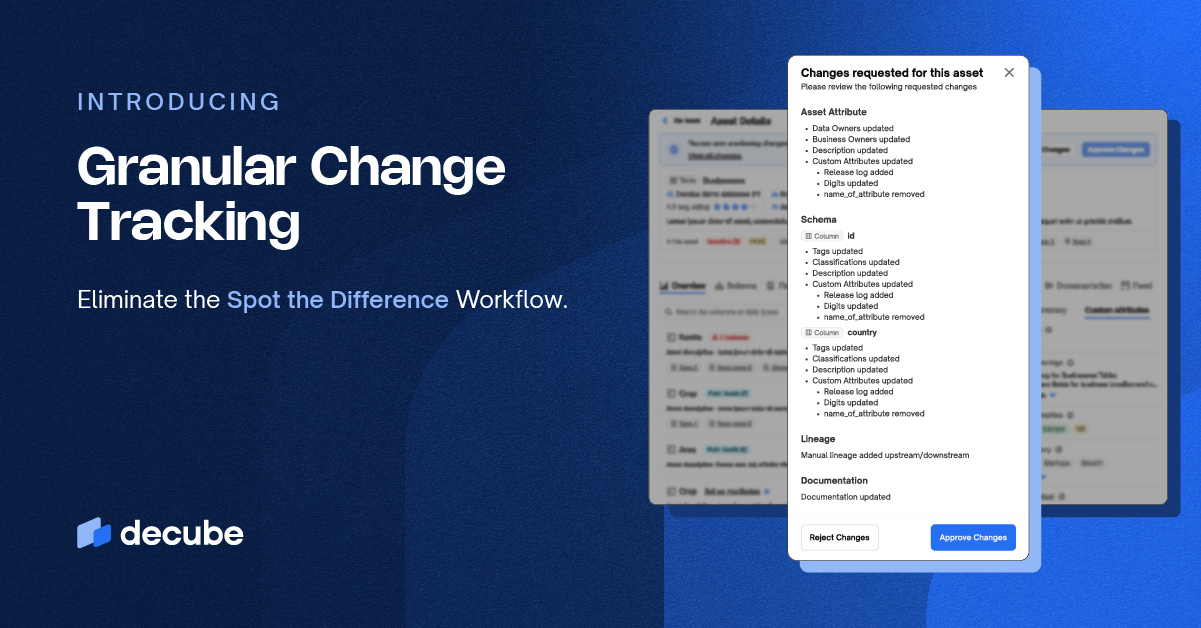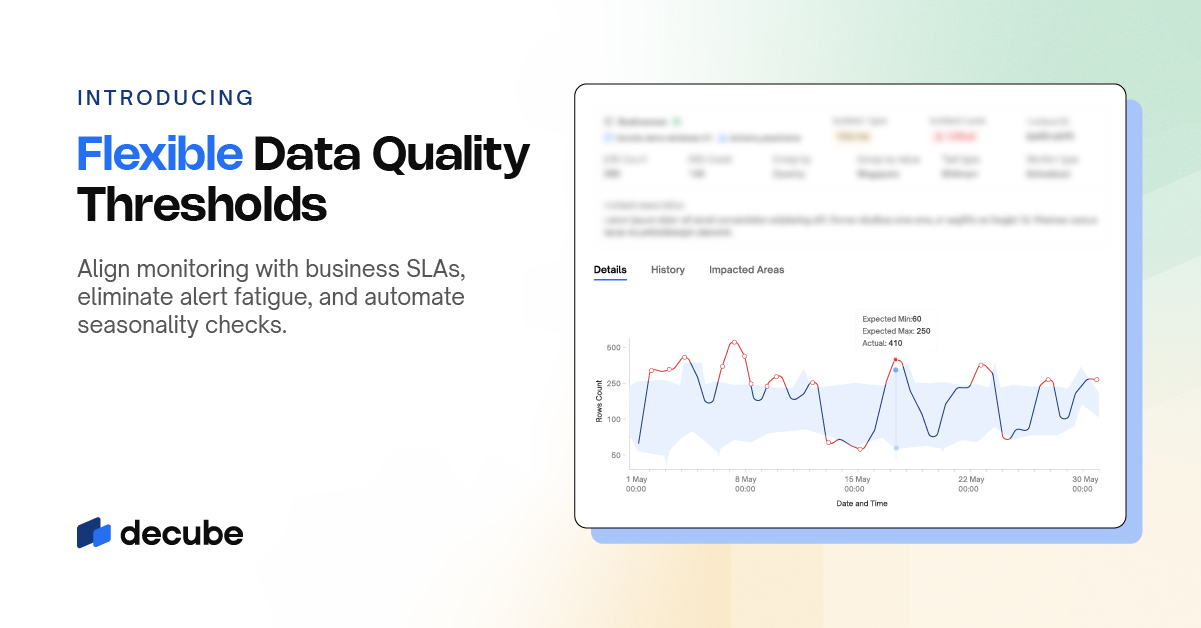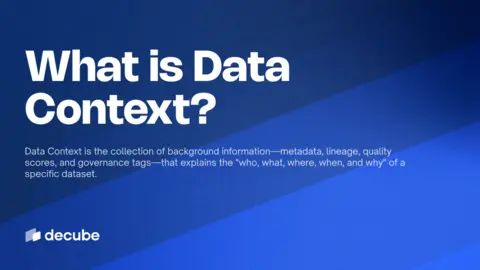Kindly fill up the following to try out our sandbox experience. We will get back to you at the earliest.
Data Catalog vs. Data Dictionary
Explore the key distinctions and functionalities of data catalog vs data data dictionary to enhance your data management strategy.

Did you know companies can save up to 30% on costs with a good data management strategy? In today's world, how businesses handle data is key to their success. Tools like data catalogs and data dictionaries are vital for this.
An overview of data management tools shows a shift towards tools that organize and make data easy to access. Data catalogs and dictionaries help streamline data management. They ensure data is accurate and easy to find. These tools are crucial for making informed decisions.
Key Takeaways
- Data management tools can reduce operating costs by up to 30%.
- Data catalogs and data dictionaries are essential for organizing large datasets.
- These tools ensure data accuracy and accessibility.
- Efficient data management is crucial for businesses and researchers.
- Understanding data management tools is the first step to optimizing data-driven decisions.
Definition and Purpose
Knowing what "data catalog" and "data dictionary" mean is key for companies to use their data well. These tools are important for managing data. They make data easier to find, understand, and follow rules for.
Data Catalog
A data catalog definition says it's a tool to handle and find metadata from many sources in a company. It helps understand data by giving lots of metadata details. Important data catalog use cases are finding data, following rules, and making decisions, making data easy to use for analysis.
Data Dictionary
The data dictionary purpose is to give detailed info on database designs. It lists data elements, how they connect, and their types. This helps understand the data set fully. For data dictionary implementation, it's key to keep data definitions right and the same across the company.
Key Features
It's key to know the main parts of data management tools to make them work better in a company. This part talks about the main features of data catalogs and dictionaries. It explains how they help with managing metadata, making data easier to find, and more.
Data Catalog
Data catalog make managing metadata easy, which helps with data governance and makes finding data easier. The main features are:
- Metadata Management: It keeps track of data about other data, making it easier to sort and find.
- Data Lineage: It follows the journey of data through different changes, showing where data comes from and where it goes.
- User Collaboration: It lets people work together on metadata, helping teams work better together.
Searchability: It has advanced search tools that help users quickly find the data they need.
Data Dictionary
Data dictionaries are vital for making sure everyone understands and uses data the same way. They focus on these main points:
- Structured Documentation: It gives a clear list of what data means, how it's defined, and its format, making sure everyone uses the same terms.
- Standardization: It makes sure everyone in the company uses data terms and attributes the same way.
- Consistency: It keeps data meanings the same by using the same definitions everywhere in the database.
- Data Dictionary Comparison: It makes comparing data terms and attributes easy, helping keep systems and datasets in line.
Benefits
Data management tools offer many benefits for organizations. They help streamline data processes, ensure consistency, and meet regulatory standards.
Data Catalog
A key benefit of data catalogs is making data easier to find. They provide a single place for all data, making it accessible to everyone. This leads to better teamwork and smarter decisions.
Data catalogs also help with data governance. They reduce risks and ensure data follows the rules, which is important for compliance.
Data Dictionary
Data dictionaries have big advantages too. They improve data quality by defining data terms clearly. This makes data use consistent across the company, reducing mistakes.
They also help with following the law by keeping detailed records of data definitions. This is key for audits and reports.
Differences
Knowing the difference between data catalog and data dictionary is key for good data management. These tools work together but have different roles in a company.
Scope and Focus
A data catalog looks at all the data in an organization. It helps users find, understand, and manage data by giving them info and metadata about datasets. A data dictionary, however, gives detailed info on the structure, relationships, and rules of certain datasets. It tells you about things like fields, their types, and how they're used.
Primary Users
Data scientists, analysts, and business users often use data catalogs. They need to quickly find and understand data for their work. Data catalog tools give them the info they need.
Database admins and developers use data dictionaries the most. They rely on the detailed info to keep data accurate, improve database speed, and design better data structures.
This shows how each tool has its own role in managing data in a company. It highlights the need for both to ensure good data management.
Similarities
Data catalogs and data dictionaries may seem different at first. But they share key similarities that help manage data better. They work together to make data sharing easier and improve data management.
Data Management Goals
Both tools aim to make data easier to manage and use in an organization. They focus on making complex data clear and easy for users. This shows how they work together to make data clear and easy to use.
Integration Potential
These tools can work together to create a strong data management system. A data dictionary can be part of a data catalog, making it better at giving details about data. This teamwork makes data definitions clear, accurate, and easy to find in an organization. It helps different systems and users work better with data.
Why Both Are Essential for Effective Data Management
In today's complex data world, having a comprehensive data strategy is key. It's important to use both data catalog and data dictionary together. This makes sure data is well-governed and meets everyone's needs.
A data catalog gives a detailed look at data sources. It makes finding data easy for users. At the same time, a data dictionary explains what the data means and how to use it. This keeps data quality high and consistent.
Using these tools together helps manage data better. It lets companies use their data well. People can easily find data they need, and understand what it means.

Working together, a data catalog and data dictionary are vital for a strong comprehensive data strategy. They work well together, making data easy to get to, keeping it accurate, and managing it well. Companies that use them together can handle their data better and more precisely.
- Data Accessibility: Makes it easier to find and use data.
- Data Quality: Keeps data consistent and correct.
- Data Governance: Keeps data standards in check.
By using both data catalog and data dictionary, companies build a strong data system. This supports better data management practices.
Decube’s Data Catalog Solutions
Decube’s Data Catalog offers strong solutions that work well with data dictionaries. This makes managing data complete. It helps find and use data better, making a strong platform for data experts.
How Decube’s solutions work with data dictionaries for comprehensive management
Decube's Data Catalog is great at finding metadata. It uses smart algorithms to bring together and make data better. This makes it easier for users to find, understand, and use data.
Also, Decube's Data Catalog works well with data dictionaries. This is key as it connects data cataloging and dictionary tools. It helps data teams work together better. Updates in one tool are shown in the other, keeping data consistent and accurate.
Using Decube’s Data Catalog and data dictionaries together helps manage data better. It makes sure data is defined and used the same way everywhere. This helps follow data rules and gives users deep insights into their data.
Decube’s solutions focus on working together. They have an easy-to-use interface and strong search tools. This encourages teamwork and makes data-driven decisions easier. It leads to better data management, helping organizations get more value from their data.
In short, Decube's Data Catalog, with its work with data dictionaries, offers a strong way to manage data well. This teamwork makes sure data is found and used right, keeping data quality and rules high.
Conclusion
In conclusion, data catalogs and data dictionaries are key to managing data well. They help with data governance, quality, and use. Together, they make data easy to understand, get to, and use.
Companies looking to improve their data management should think about using both tools. They help keep track of and control data better. A data catalog keeps track of where data comes from and what it means. A data dictionary gives clear definitions and standards.
This mix of tools is crucial for good data management. Using them well can make data better and improve how things work. As data becomes more important, using these tools wisely can give companies an edge. Starting to use these tools is the first step to better data management and smarter business choices.
FAQ
What is a data catalog?
A data catalog is a tool that helps find and manage metadata. It makes data easier to understand and use in an organization. It also helps people work together better.
What is a data dictionary?
A data dictionary is a detailed guide to database schemas. It keeps track of what each piece of data means. This ensures everyone in the company uses the same terms and understands the data the same way.
What are the key features of a data catalog?
A data catalog has features like managing metadata, working together, and keeping data in order. These help make data easier to find and understand in an organization.
What are the key features of a data dictionary?
Data dictionaries focus on keeping detailed records and making sure data is used the same way everywhere. They help keep data accurate and consistent across the company.
What are the benefits of using a data catalog?
Using a data catalog makes finding data easier and helps people work together better. It also improves how data is managed. This leads to better decisions and more efficiency in the organization.
What are the advantages of using a data dictionary?
Data dictionaries improve data quality and make sure data is used consistently. They help follow rules and keep data accurate and reliable in the organization.
What is the difference between a data catalog and a data dictionary?
Data catalogs help access all data in an organization. Data dictionaries focus on the structure of specific datasets. Data catalogs are for data scientists and analysts, while dictionaries are for database admins.
How do data catalogs and data dictionaries complement each other?
Both tools aim to improve how data is managed and used. Data catalogs help find and use metadata, while dictionaries provide detailed structure info. Together, they make data easier to access, maintain quality, and govern.
Why are both a data catalog and a data dictionary essential for effective data management?
Both tools are crucial for managing data well. A catalog makes data easy to find and share, while a dictionary keeps data accurate and consistent. Together, they support a strong data management plan for all stakeholders in an organization.
How do Decube’s data catalog solutions work with data dictionaries?
Decube’s solutions enhance metadata discovery and collaboration. They work well with data dictionaries, offering a complete data management solution. This approach uses the best of both tools for better data management.

_For%20light%20backgrounds.svg)
















